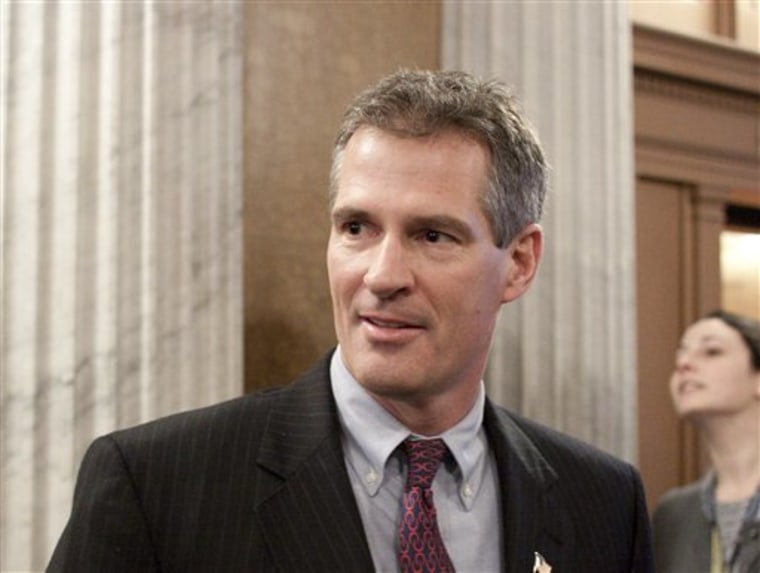Companies that hire the unemployed would claim new tax breaks under a jobs-promoting bill the Senate passed Wednesday, delivering President Barack Obama and Democrats a much-needed victory.
The 70-28 vote sends the bill back to the House, which passed a far more costly measure in December. Many in the House consider the Senate bill too puny, but they may simply adopt it and send it to Obama in order to get a win. Democratic leaders promise more so-called jobs bills are on the way.
It's the first major bill to pass the Senate since the Christmas Eve passage of a deeply controversial health care bill and the subsequent election of Massachusetts Republican Scott Brown, which rocked Democrats by demonstrating their falling standing even among heavily Democratic voters.
The bill contain two major provisions. First, it would exempt businesses hiring the unemployed from the 6.2 percent Social Security payroll tax through December and give them an additional $1,000 credit if new workers stay on the job a full year. The Social Security trust funds would be reimbursed for the lost revenue.
Second, it would extend highway and mass transit programs through the end of the year and pump $20 billion into them in time for the spring construction season. The money would make up for lower-than-expected gasoline tax revenues.
The Senate's $35 billion proposal is a far smaller measure than the $862 billion economic stimulus bill enacted a year ago.
The measure cleared a key hurdle Monday when Brown and four other Republicans broke party ranks to defeat a filibuster. Republican leaders said Majority Leader Harry Reid, D-Nev., had used strong-arm tactics to bring the measure to the floor.
In all, 13 Republicans voted for the measure Wednesday. Sen. Ben Nelson of Nebraska was the only Democrat in opposition.
Sen. Judd Gregg of New Hampshire, top Republican on the Senate Budget Committee, blasted the measure for increasing the budget deficit to fund highway and transit programs. He said the measure made a joke of Democratic promises to adhere to "pay-as-you-go" budget rules requiring new spending programs to not increase the deficit.
"I don't think you get people back to work in this nation by loading more and more debt onto the next generation," Gregg said.
The new hiring tax credit could spur about 250,000 new jobs, according to economist Mark Zandi of Moody's Economy.com. The economy has shed 8.4 million jobs since the recession began in December, 2007.
Sen. Charles Schumer, D-N.Y., a sponsor of the hiring tax break, said it would have an immediate impact since businesses won't have to apply for it when doing their taxes a year from now.
"It immediately takes effect," Schumer said. "It goes right to small businesses."
In addition to the hiring tax incentives and highway funding, the bill would extend a tax break for small businesses buying new equipment and modestly expand an initiative that helps state and local governments pay for infrastructure projects.
Republicans and some Democrats were unhappy that Reid brought the jobs bill to the floor after abruptly dumping about $70 billion worth of tax breaks for businesses and individuals, help for the unemployed and additional Medicare payments to doctors that had been introduced by Sens. Max Baucus, D-Mont., and Charles Grassley, R-Iowa, the chairman and senior Republican on the Finance Committee.
Most, if not all, of those ideas are expected to return in subsequent legislation.
"We're just getting started," said Baucus. "Our goal is to make sure that get bills passed that help people get more jobs. That's what they want."
Before lawmakers can pass more jobs legislation, the Senate will have to first approve a stopgap measure to continue the help for the unemployed doctors in the Medicare program that Reid had dropped from the earlier jobs legislation. The help currently expires on Feb. 28.
